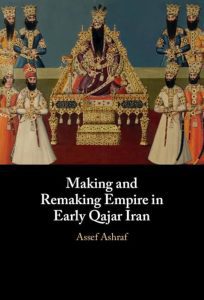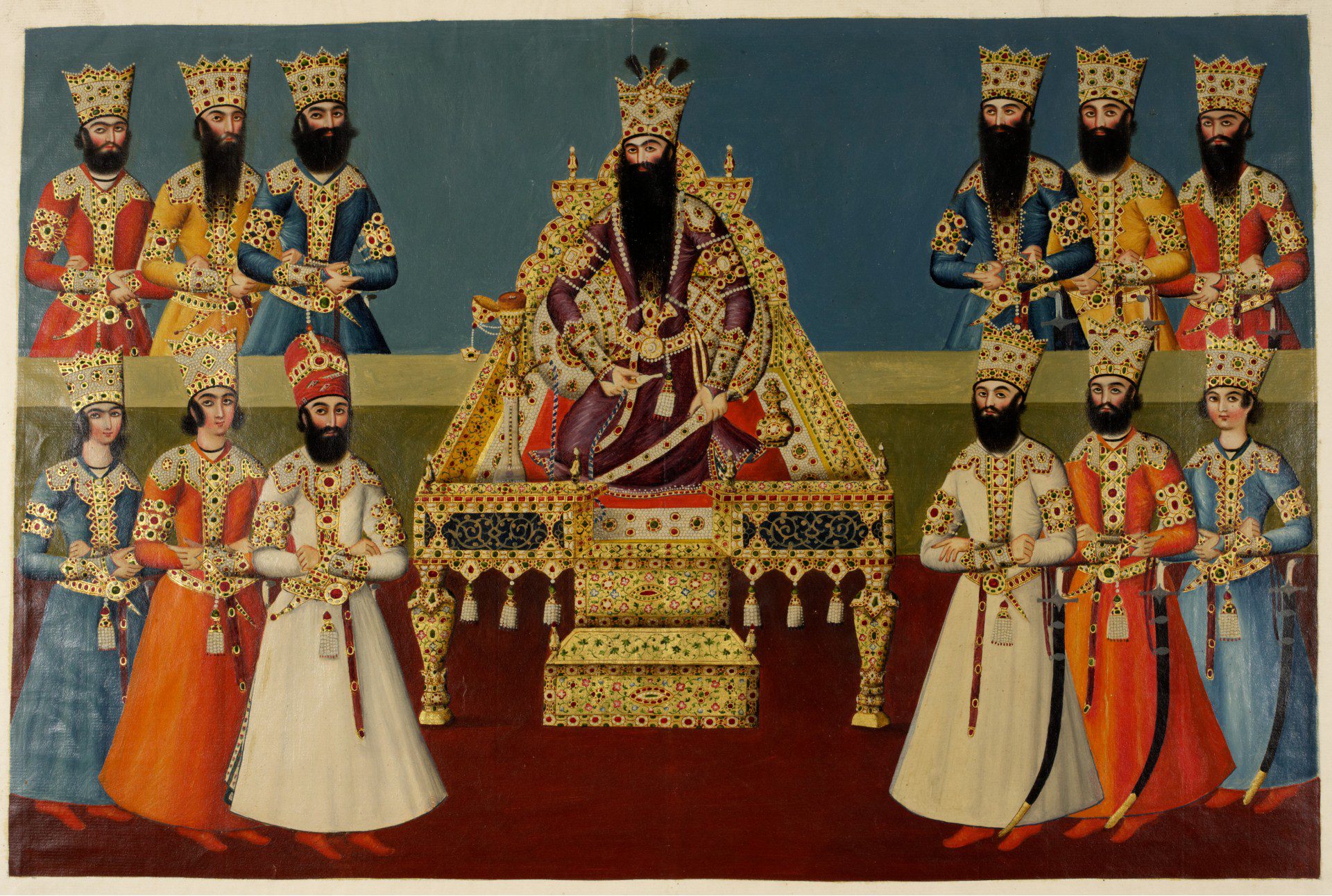Making and Remaking Empire in Early Qajar Iran
with Assef Ashraf
 In 1722, the Safavid empire collapsed. An empire that ruled for over two centuries, and which in its heyday spanned parts of Central Asia, the Caucasus, and present-day Iran, came to a swift end. The following decades were ones of political turmoil, and it was only with the rise of the Qajars in the 1780s that a level of stability was restored.
In 1722, the Safavid empire collapsed. An empire that ruled for over two centuries, and which in its heyday spanned parts of Central Asia, the Caucasus, and present-day Iran, came to a swift end. The following decades were ones of political turmoil, and it was only with the rise of the Qajars in the 1780s that a level of stability was restored.
This talk, while drawing on a range of sources, will focus on how the Qajars governed their new empire. In doing so, it offers an explanation for how and why Qajar Iran formed out of the cauldron of eighteenth-century unrest, but also hopes to advance our understanding of an understudied but transitional moment in Iranian history.
About the speaker:
 Assef Ashraf is Associate Professor in the Eastern Islamic Lands and Persian-Speaking World at the University of Cambridge and Fellow of Pembroke College, Cambridge. He is a historian and teaches in courses at Cambridge that span across the medieval, early modern, and modern histories of Iran and the Persianate world. Much of research has centred on the questions of how and why political cultures endure, and how and why they change. In addition to his recently published monograph, aspects of his research have been published in journals like CSSH, IJMES, and JESHO. He co-edited The Persianate World: Rethinking a Shared Sphere (Brill, 2019) and will be a co-editor of the forthcoming Cambridge Companion on Qajar Iran (under contract, CUP).
Assef Ashraf is Associate Professor in the Eastern Islamic Lands and Persian-Speaking World at the University of Cambridge and Fellow of Pembroke College, Cambridge. He is a historian and teaches in courses at Cambridge that span across the medieval, early modern, and modern histories of Iran and the Persianate world. Much of research has centred on the questions of how and why political cultures endure, and how and why they change. In addition to his recently published monograph, aspects of his research have been published in journals like CSSH, IJMES, and JESHO. He co-edited The Persianate World: Rethinking a Shared Sphere (Brill, 2019) and will be a co-editor of the forthcoming Cambridge Companion on Qajar Iran (under contract, CUP).
To the left: Add Or 1239, The British Library
